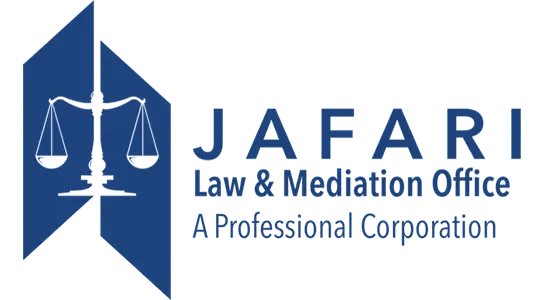In California, child support is a legally binding obligation that ensures both parents contribute to the well-being and financial needs of their child. When a parent fails to pay court-ordered child support, the legal and financial consequences can be severe. This article offers a comprehensive guide on what happens when child support payments go unpaid, the enforcement mechanisms available to the receiving parent, and the options for the parent who is behind on payments.
Legal Penalties for Not Paying Child Support
Failing to pay child support is a serious violation of a court order and can lead to several legal penalties. Courts and state agencies have multiple methods at their disposal to enforce child support orders and ensure that children receive the financial support they are entitled to.
The consequences of unpaid child support can vary based on several factors, including the amount owed, how long the payments have been missed, the parent’s financial situation, and how cooperative the paying parent is being.
Interest – In California, interest is charged automatically on child support payments as soon as they become overdue. Even being late by one day triggers interest. The interest rate on unpaid child support is 10% per year, which is applied to the total amount of unpaid support. It starts accruing the day after the payment is due and is calculated daily and accumulates until the overdue amount is paid in full. As interest is accrued, it’s added to the outstanding balance and goes to the receiving parent as compensation for the delayed payments. This can significantly increase the total amount owed, making it crucial for non-paying parents to address arrears promptly.
Negative Impact on Credit – When child support remains unpaid for an extended period, the arrears may be reported to credit bureaus, causing a significant drop in the non-paying parent’s credit score. A poor credit score can make it harder to obtain loans, mortgages, or credit cards, compounding the financial difficulties faced by the non-paying parent.
Contempt of Court – When a parent does not pay child support, they may be held in contempt of court. This is a legal penalty that can result in fines, community service, and in extreme cases, jail time. While jail sentences for non-payment are rare and usually a last resort, they can be applied if the non-paying parent continues to willfully disregard the court’s order.
$2,500 or More in Unpaid Child Support
In California, the consequences of unpaid child support vary depending on the amount. In addition to all of the consequences listed above, when your child support arrears exceed $2,500, additional enforcement actions come into play:
Driver’s License Suspensions – If arrears exceed $2,500, California can suspend the non-paying parent’s driver’s license. Driving with a suspended license in California is a serious offense and carries significant penalties including fines up to $1,000 and possibly even jail time.
Professional License Suspensions – The state can also suspend any professional licenses the non-paying parent’s may hold. This can include licenses to practice law, medicine, or even general contracting.
Passport Denial – Parents who owe more than $2,500 in child support arrears may also have their U.S. passport application denied or having an existing passport revoked. This restriction remains in place until the outstanding balance is paid.
How are Past Due Child Support Payments Collected?
The receiving parent has several options for enforcing child support payments when the paying parent falls behind. These mechanisms can be utilized either through the Department of Child Support Services (DCSS) or directly through the courts.
Perhaps the most common enforcement mechanism is wage garnishment This is when payments can be automatically deducted from the paying parent’s paycheck. The employer is responsible for withholding the ordered amount and sending it to the State Disbursement Unit (SDU who pays the receiving parent.
In California, when a child support order is issued, wage garnishment is usually included as part of the order. However, people can still fall behind in their child support payments due to a variety of factors such as gaps in employment and incarceration. There are also some cases when automatic garnishment is not ordered.In these situations, it can be requested after even just one missed payment. Once a motion is filed and granted by the court, wage garnishment can be ordered fairly quickly.
Whether included with the original child support orders or not, to initiate the garnishment the DCSS or the court will send an Income Withholding Order (FL-195) to the non-paying parent’s employer. The employer is required by law to start garnishing wages as soon as possible, but they usually have a 10-day window to begin withholding child support after receiving the order.These payments are then sent to the State Disbursement Unit (SDU), which processes and distributes the funds to the receiving parent.
If the paying parent is behind on payment, both current child support and arrears) can be deducted from the paying parent’s wages. However, there are limits on how much can be garnished from each paycheck, even if the paying parent owes multiple months of arrears.
How Much Can Be Garnished From My Paycheck?
Federal and California laws set limits on how much of a person’s wages can be garnished for child support.The maximum amounts that can be taken from a paycheck are as follows:
- Up to 50% of disposable income if the paying parent is supporting another spouse or child.
- Up to 60% of disposable income if the paying parent is not supporting another spouse or child.
- An additional 5% can be garnished if the parent is more than 12 weeks behind on payments, meaning garnishment can reach 55% or 65% of disposable income in some cases.
These limits apply to both current and past due child support and are calculated off of disposable income. Disposable income is the amount left after mandatory deductions like federal, state, and local taxes, Social Security, and Medicare. It does not include voluntary deductions like health insurance or retirement contributions. The garnished wages are applied first to current child support and then to arrears. This ensures that ongoing support for the child is met before tackling past-due amounts.
In addition to wage garnishment, child support arrears can also be collected through seizure of federal and state tax refunds, bank levies and property liens. All of which can be handled for free by The Department of Child Support Services (DCSS). Working with DCSS can simplify the enforcement process greatly as they can utilize these tools without the need for court involvement in many cases.
What Happens If the Paying Parent Is Self-Employed or Unemployed?
Enforcing child support can be more challenging if the non-paying parent is self-employed or unemployed. Without a traditional employer, wage garnishment may not be possible. However, the court can still use other enforcement tools, such as seizing bank accounts, placing liens on property, or intercepting tax refunds. Even without a regular income, the non-paying parent is still legally obligated to fulfill their child support responsibilities.
Legitimate Reasons for Non-Payment: Are There Any Defenses?
While non-payment of child support is typically met with enforcement actions, there are certain circumstances in which a parent may have a legitimate reason for falling behind. However, even in these cases, legal action is required to modify the support order.
Incarceration
If a parent is incarcerated for more than 90 days, they may be eligible for a temporary suspension or modification of their child support obligation. However, this does not happen automatically; the incarcerated parent must file a motion with the court requesting a modification based on their reduced income. Without such a modification, child support arrears will continue to accumulate during the incarceration period.
Military Deployment
A parent who is serving in the military or working overseas is still obligated to pay child support. However, if their financial situation has changed significantly due to their deployment or job, they can request a modification of the support order. Military income can still be garnished for child support, and arrears will continue to accrue if payments are missed.
Be clear that child support cannot be modified retroactively in California. Any modifications to child support payments only apply to future payments, starting from the date the modification request is filed. This means that past due amounts, or arrears, cannot be reduced or forgive after being released from jail or returning from deployment
Unpaid child support in California can result in serious legal and financial consequences, including wage garnishment, license suspension, asset seizure, and lasting damage to credit scores. Child support arrears continue to accumulate interest and remain a debt indefinitely, even after the child reaches adulthood. The receiving parent has multiple avenues to enforce payment, from working with the Department of Child Support Services (DCSS) to filing motions in court. For non-paying parents, it is crucial to address arrears proactively, as ignoring child support obligations can lead to long-term and far-reaching consequences.
Contact A Child Custody Lawyer Today
If you need a child custody attorney in Los Angeles or Orange County, contact Jafari Law and Mediation Office for a consultation. Our experienced team is dedicated to providing the compassionate and assertive legal support you need.

